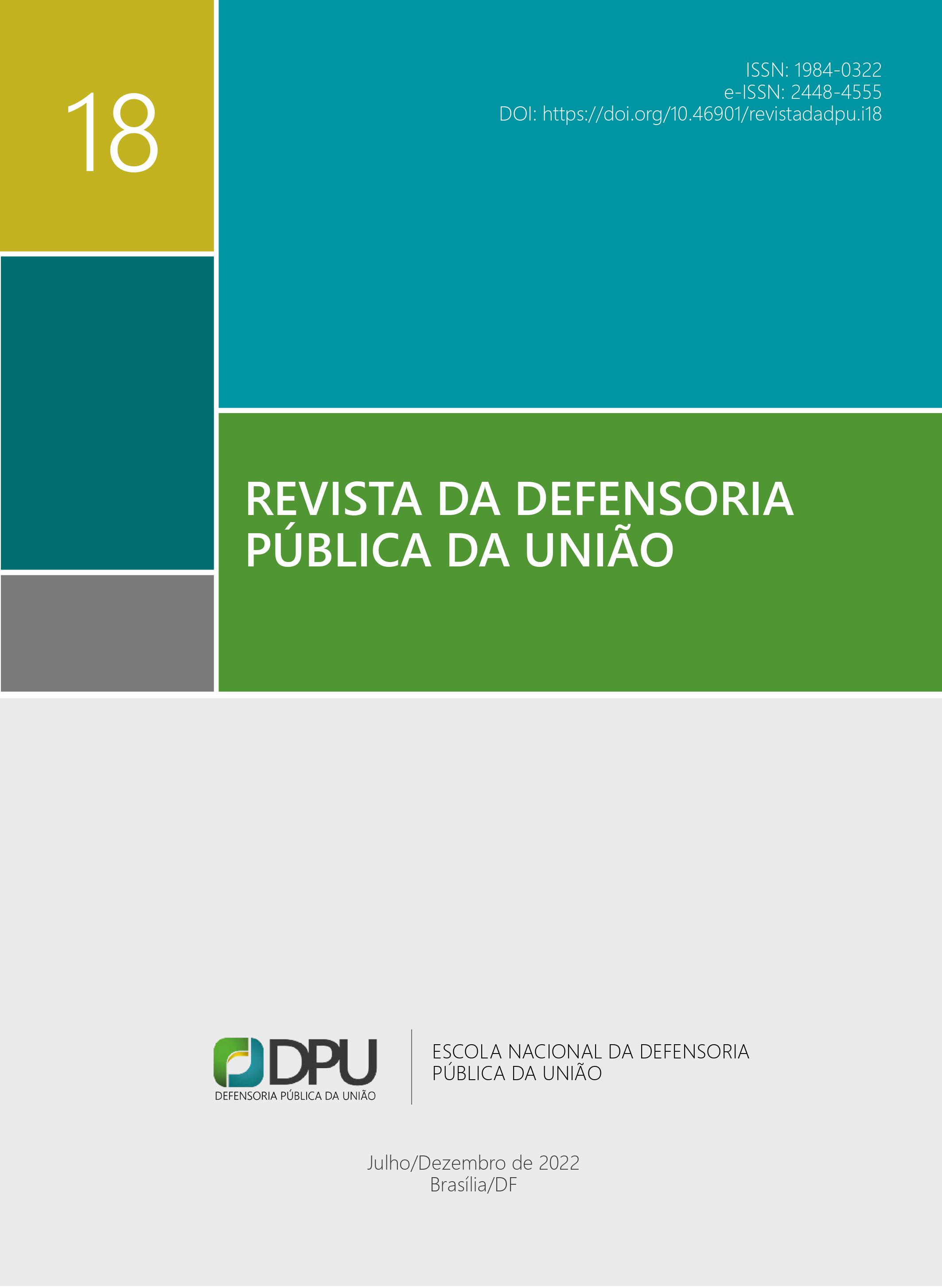Direitos dos invisíveis: a política nacional judicial para as pessoas em situação de rua
DOI:
https://doi.org/10.46901/revistadadpu.i18.p21-32Abstract
This article seeks to analyze the historical marginalization and violation of human rights that homeless people have suffered in Brazil. Human rights of various shades are daily reviled. During the Covid-19 pandemic, this situation was even more explicit. Observing this reality of violation of rights, the National Human Rights Council – CNDH issued Resolution No. 40 in October 2020, which is a landmark in the rights of homeless people. In the same direction, almost a year after CNDH Resolution No. 40, the National Council of Justice (CNJ) approved, on September 21, 2021, during the 338th Ordinary Session, the National Judicial Policy for Attention to Homeless People. In this article we will analyze some fundamental aspects of the CNJ Resolution. There is no illusion that a normative text of the CNJ will guarantee access to justice for a population group that has been suffering from the process of criminalization/exclusion for centuries. However, the Resolution of the CNJ, as well as Resolution No. 40 of the CNDH of 2020 and Decree No. 7,053/09 are instruments of struggle for the realization of the rights of the homeless people.
References
BRASIL. Código Criminal do Império do Brazil, de 16 de dezembro de 1830. Manda executar o Código Criminal. In: Coleção de Leis do Império do Brasil. Rio de Janeiro: Typographia Nacional, 1830. Disponível em: http://www.planalto.gov.br/ccivil_03/leis/lim/LIM-16-12-1830.htm. Acesso em: 3 nov. 2022.
BRASIL. Conselho Nacional de Justiça. Resolução Nº 425 de 08/10/2021. Institui, no âmbito do Poder Judiciário, a Política Nacional Judicial de Atenção a Pessoas em Situação de Rua e suas interseccionalidades. Brasília, DF: Conselho Nacional de Justiça, 2021. Disponível em: https://atos.cnj.jus.br/files/original1447482021101161644e94ab8a0.pdf. Acesso em: 3 nov. 2022.
BRASIL. Decreto-Lei 2.848, de 07 de dezembro de 1940. Código Penal. Rio de Janeiro: Diário Oficial da União, 1940. Disponível em: https://www.planalto.gov.br/ccivil_03/decreto-lei/del2848compilado.htm. Acesso em: 3 nov. 2022.
BRASIL. Decreto nº 7.053 de 23 de dezembro de 2009. Institui a Política Nacional para a População em Situação de Rua e seu Comitê Intersetorial de Acompanhamento e Monitoramento, e dá outras providências. Brasília, DF: Presidência da República, 2009. Disponível em: http://www.planalto.gov.br/ccivil_03/_ato2007-2010/2009/decreto/d7053.htm. Acesso em: 3 nov. 2022.
DIAS, A. L. F. Dados referentes ao fenômeno da população em situação de rua no Brasil – Relatório técnico-científico –Plataforma de Atenção em Direitos Humanos. Belo Horizonte: Marginália Comunicação, 2021.
GOMES, J. D. G. Primeira infância e maternidade nas ruas da cidade de São Paulo: relatório de pesquisa. São Paulo: Lampião Conteúdo e Conhecimento, 2017.
MAYOR, R. S. Defensoria Pública na rua: Limites e possibilidades de acesso à justiça à população em situação de rua. Dissertação (Mestrado em Ciências Jurídicas e Sociais) – Programa de Pós-Graduação em Sociologia e Direito da Universidade Federal Fluminense, Niterói, 2019.
MAYOR, R. V. S.; DUEK, N. A.; TREIGER, T. A. Invisíveis e reais: a atuação da defensoria pública da união para a inclusão de pessoas em situação de rua no censo demográfico. In: SIMÕES, L. D.;
MORAIS, F. M. T. F. de; FRANCISQUINI, D. E. (org.). Defensoria Pública e a tutela estratégica dos coletivamente vulnerabilizados. Belo Horizonte: D’Plácido, 2019.
MAZZUOLI, V. de O. Curso de direitos humanos. 8. ed. São Paulo: Método, 2021.
PORTUGAL. Código Philippino ou Ordenações e Leis do Reino de Portugal. Rio de Janeiro: Typographia do Instituto Philomathico, 1870. Disponível em: https://www2.senado.leg.br/bdsf/item/id/242733. Acesso em: 3 nov. 2022.
PRATES, F. C.; PRATES, J, C.; MACHADO, S. Populações em situação de rua: Os processos de exclusão e inclusão precária vivenciados por esse segmento, Revista Temporalis, Brasília, v. 11, n. 22, 2012. Disponível em: https://periodicos.ufes.br/temporalis/issue/view/191. Acesso em 1 nov. 2022.
Downloads
Published
How to Cite
Issue
Section
License
Copyright (c) 2022 Revista da Defensoria Pública da União

This work is licensed under a Creative Commons Attribution-NonCommercial 4.0 International License.
A. Authors retain the copyright and grant the journal the right of first publication;
B. Authors are authorized to take additional contracts separately, for non-exclusive distribution of the version of the work published in this journal (e.g.: publishing in an institutional repository or as a book chapter), with recognition of authorship and initial publication in this journal;
C. Authors are allowed and encouraged to publish and distribute their work online (e.g.: in institutional repositories or on their personal page) at any point before or during the editorial process, since this can generate productive changes, as well as increase the impact and citation of the published work.
















.jpg)

